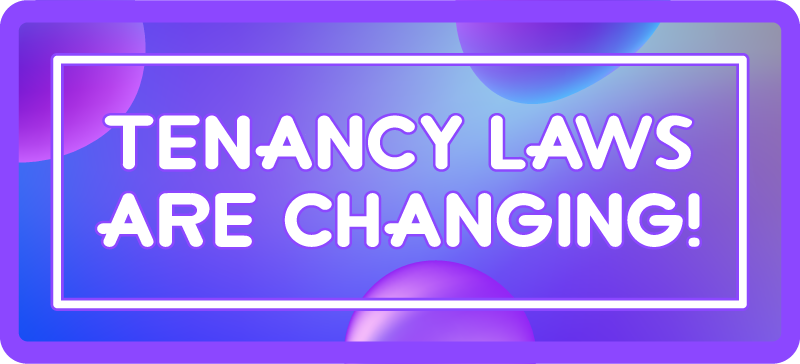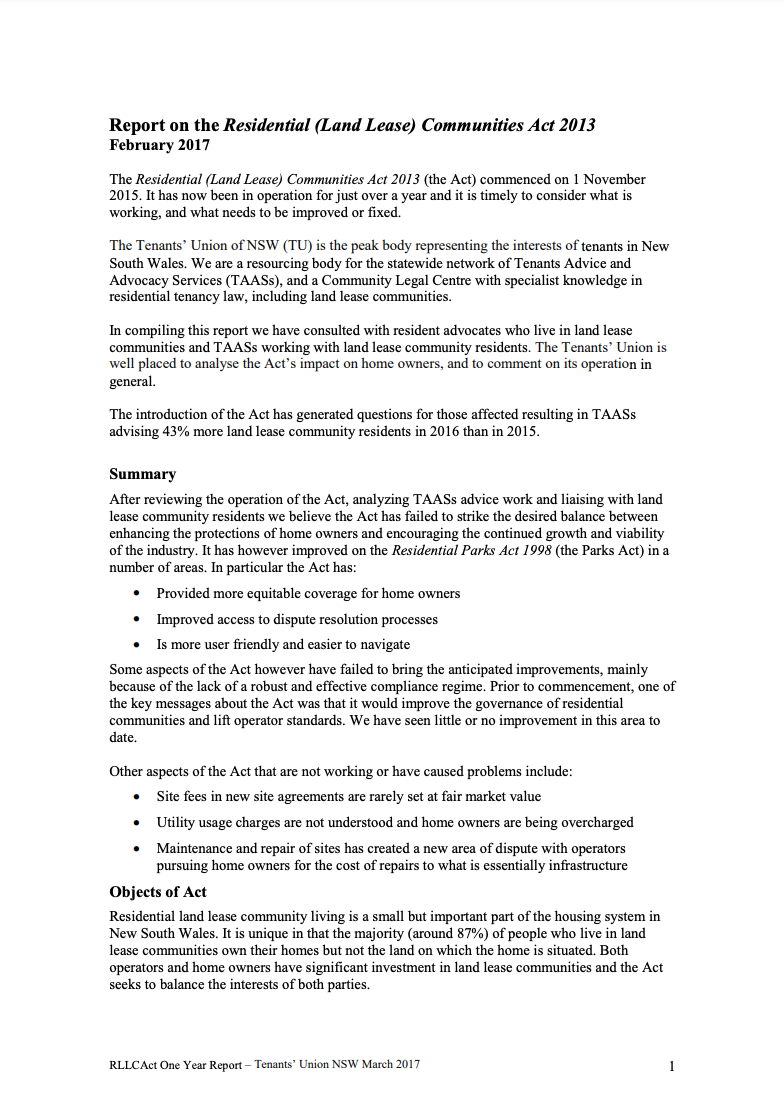Report: Residential (Land Lease) Communities Act 2013
01/02/2017
The Residential (Land Lease) Communities Act 2013 (the Act) commenced on 1 November 2015. It has now been in operation for just over a year and it is timely to consider what is working, and what needs to be improved or fixed.
The Tenants’ Union of NSW (TU) is the peak body representing the interests of tenants in New South Wales. We are a resourcing body for the statewide network of Tenants Advice and Advocacy Services (TAASs), and a Community Legal Centre with specialist knowledge in residential tenancy law, including land lease communities.
In compiling this report we have consulted with resident advocates who live in land lease communities and TAASs working with land lease community residents. The Tenants’ Union is well placed to analyse the Act’s impact on home owners, and to comment on its operation in general.
The introduction of the Act has generated questions for those affected resulting in TAASs advising 43% more land lease community residents in 2016 than in 2015.
Summary
After reviewing the operation of the Act, analysing TAASs advice work and liaising with land lease community residents we believe the Act has failed to strike the desired balance between enhancing the protections of home owners and encouraging the continued growth and viability of the industry. It has however improved on the Residential Parks Act 1998 (the Parks Act) in a
number of areas. In particular the Act has:
- Provided more equitable coverage for home owners
- Improved access to dispute resolution processes
- Is more user friendly and easier to navigate
Some aspects of the Act however have failed to bring the anticipated improvements, mainly because of the lack of a robust and effective compliance regime. Prior to commencement, one of the key messages about the Act was that it would improve the governance of residential communities and lift operator standards. We have seen little or no improvement in this area to
date.
Other aspects of the Act that are not working or have caused problems include:
- Site fees in new site agreements are rarely set at fair market value
- Utility usage charges are not understood and home owners are being overcharged
- Maintenance and repair of sites has created a new area of dispute with operators pursuing home owners for the cost of repairs to what is essentially infrastructure


